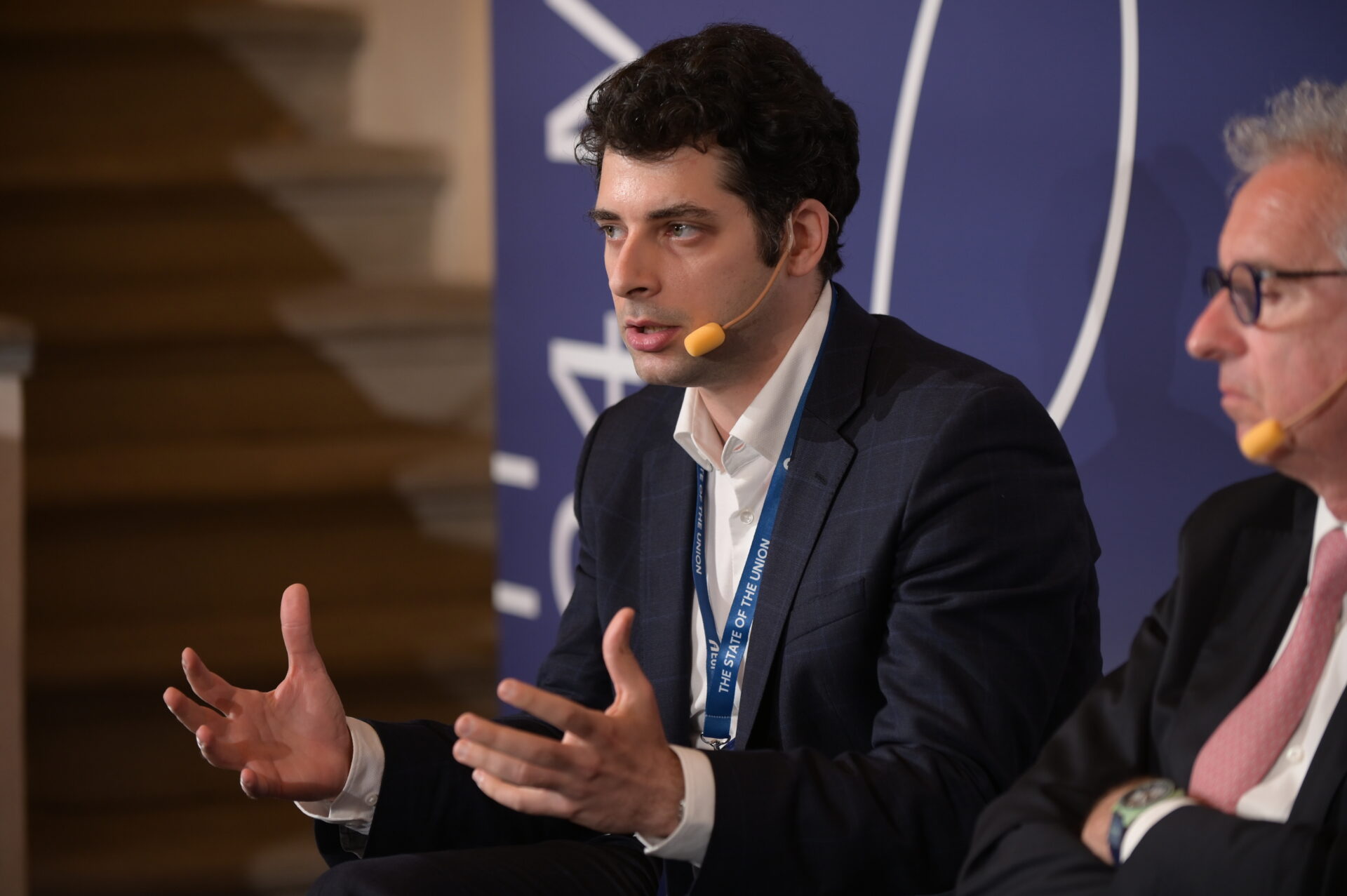
State of the Union
In the panel on "New macroeconomic modes in the European Union" Pekanov discussed together with Pierre Gramegna, Director of the European Stability Mechanism (ESM), Laurence Boone, former State Secretary of France, and Declan Costello, Deputy Director-General of the Directorate-General for Economic and Financial Affairs (DG ECFIN), moderated by Benedicta Marzinotto (EUI).
In his remarks Pekanov delved into the challenges the European Economic and Monetary Union has faced throughout different macroeconomic shocks in recent years. He discussed in detail the implications for the future of the EU of the creation of the NextGenerationFund and the related Recovery and Resilience Facility, for which he has written extensively in his academic work, but was also in charge during his time as Deputy Prime Minister for EU funding of Bulgaria.
"The EU did well during the pandemic to mobilise big financial resources to fight the economic recession. In the coming years, the EU will have to do the same to ensure its economic sovereignty, industry and invest in technology made in Europe. We need to invest more to compete with our main competitors, to be better connected in transport and energy, to ensure cutting edge research. Much more to do and decide for the coming years on all of this."
"The pandemic has changed the scope for fiscal policy and led to a period of fiscal stimulus in advanced economies. In the EU, this was also provided by the successful introduction of NextGenerationEU, which helped overcome financial market turbulences and started off important public investments in green and digital. There is however much to be learned from some of the challenges such a period of increased fiscal stimulus might induce. We can improve the implementation of NextGenEU to make it work better and ensure that its initial successes from the pandemic continue up throughout its full realisation."

